Solidarity in a Pandemic: Possibilities and Limits
BY MARCUS MESCHER | August 17, 2020
Service helps us see the gifts we can give others. It can also teach us how to receive gifts from others. Service can change our perspective to more readily recognize the root causes and painful effects of injustice. And when service becomes a habit, when it is framed by accompaniment—showing up consistently, walking together, offering support and encouragement—it can be a first step toward solidarity, so that we are not just doing for others to make a difference but being with others to become different together. Whereas service is often marked by unilateral assistance, the hallmark of solidarity is mutuality. It’s the difference between “I am here for you” as a service provider to service recipients and “we are in this together.” Solidarity means we keep showing up and put our skin in the game.
My Jesuit education was filled with meaningful encounters and transformative experiences, meeting people who helped me to see differently, to think more complexly, and to discover my own voice. But the greatest gifts of my Jesuit education have been relationships, the dynamic formation that takes place in sharing life together over time.

UCA and Xavier University students bond through soccer at the UCA in San Salvador
I saw this take root with my Xavier University students in March in an immersive learning experience in El Salvador. Certainly, the word “solidarity” took on new meaning after visiting the places where Saint Òscar Romero lived and died, meeting the people who shared life with him and the UCA martyrs. But even more, my students and I experienced solidarity through the hospitality and friendship of the Universidad Centroamericana (UCA) students who embraced us from the start and treated us like long lost family.
Julia Olinger, a musical theatre major, attests that the “UCA students were a prime example of what it means to be a friend. They always put the needs of others above their own and because of that, they find themselves faithfully along the way. The UCA students remind me of the person I want to become for and with others, and I hope to be a source of light for others in this world. I never want to make others feel unwanted or unheard. We are never alone.”

A group of UCA and Xavier University students enjoy a waterfall together in Santo Domingo de Guzmán, El Salvador.
Many students recounted that our time in El Salvador was life-changing, which has me wondering whether and how it would be possible to replicate this experience during a pandemic. Wearing masks, maintaining physical distancing, and relying on remote learning aren’t conducive to the proximity that can engender mutual vulnerability and authenticity, necessary ingredients for solidarity. Our trip to El Salvador was just in time: the borders were closing, university programs were suspended, and by the time we returned to campus, everything had been moved online.
The spread of COVID-19 means I won’t be able to return to El Salvador in the coming academic year. But does that mean giving up on such a transformative experience? True, it is hard to imagine this having such a powerful effect on all of us if it had been mediated through a screen instead of in person. Geography matters. It’s not possible to digitally replicate what it’s like to stand in the rose garden where the UCA Jesuits were murdered. As embodied persons, we take in the world in more ways than just our eyes or ears. We were moved by the people we met because we were welcomed into their homes; their reality became our reality, even if only for a short time. Surely the bonds of friendship were fostered just as much if not more in spontaneous and informal moments than the carefully planned ones: sitting next to each other on the bus ride, playing soccer or doing yoga together, eating pupusas or washing dishes, and using gestures to fill in gaps across the language barrier.
If we cannot replicate what it looks like, sounds like, smells like, tastes like, or feels like, that does not mean we cannot approximate what it means to share life together, to cultivate friendship across cultures or continents. Our Jesuit network offers countless latent ties, portals to people and places ready to provide access to more vantage points to deepen and broaden our grasp of human experience, be moved by social problems, and to imagine new possibilities. Our institutions are filled with people who are bright and generous, curious and creative, resilient and passionate; we can be teachers and learners together in the spirit of mutuality. As Fr. Peter-Hans Kolvenbach, S.J. noted 20 years ago,
Tomorrow’s ‘whole person’ cannot be whole without an educated awareness of society and culture with which to contribute socially, generously, in the real world. Tomorrow’s whole person must have, in brief, a well-educated solidarity. We must therefore raise our Jesuit educational standard to ‘educate the whole person of solidarity for the real world.’ Solidarity is learned through ‘contact’ rather than through ‘concepts,’ as the Holy Father said recently at an Italian university conference. When the heart is touched by direct experience, the mind may be challenged to change. Personal involvement with innocent suffering, with the injustice others suffer, is the catalyst for solidarity which then gives rise to intellectual inquiry and moral reflection.
If the year ahead cannot include in-person immersive learning experiences, alternative break trips, and other travel, then we have to stretch our imagination to leverage the tools at our disposal—like social media, WhatsApp, FaceTime, and Zoom—to be agents of encounter across physical distance.
Samantha Mossing, a graduate of Walsh Jesuit High School in Cuyahoga Falls, OH and rising junior English and theology double-major at Xavier University, reflects, “Our time in El Salvador (particularly with the UCA students) revealed to me the universality of the Church and of Jesuit education. I’ve come to understand just how lucky I am to be so connected, through the Jesuit community, with incredible people all over the world, united in faith and the pursuit of justice. I’m learning that through solidarity and mutuality we can know when to listen, and when to speak.”
Networks like the Ignatian Solidarity Network, Jesuit Schools Network, Association of Jesuit Colleges and Universities, and Entreculturas are designed to connect us on the institutional level, but not always on the interpersonal level.. In the classroom, programs like Collaborative Online International Learning create a shared learning space across borders but we need to explore more avenues for encounter, exchange, and inclusive belonging outside the classroom as well as integrate co-curricular experiences into our relationships. In the short term, the pandemic will limit our ability to travel and gather, but these digital tools and networks can help lay the foundation for robust relationships and sustainable partnerships that can be enhanced once it is safe to share life together in person again. Alternatively, however, given the carbon costs of travel by airplane, it is much more ecologically responsible to harness our screens as portals for engagement and accompaniment. The duty of being good stewards of creation means seeking more possibilities for mutual sharing through our screens.
At first it may feel a bit awkward or even superficial to connect through social media or web conferencing instead of in person. While we have to guard against “Zoom fatigue” and the other worrisome effects of life with a screen, when used well these tools can generate the rapport, support, and accountability essential for solidarity. They can be pathways to mutual authenticity and vulnerability, courage and compassion, respect and responsibility to help us to “stay awake and stay hungry” (as Sr. Peggy O’Neill likes to say) for the long haul.
Hailey Dustin, about to start her senior year as a psychology major, reflects on her many classes and experiences at Xavier and points to our class and time in El Salvador as singularly formative because it “allowed me to practice solidarity and apply what I have learned. It has taught me that practicing solidarity requires vulnerability, a true and genuine desire to be in relationship with others, and courage to imagine a world where social divides do not exist.”
Our time in El Salvador was an epiphany of solidarity. But like any experience—no matter the spiritual high it might produce—it is easy to fall back into our previous patterns of thinking, speaking, and acting. Since formation happens more through relationships and shared practices than by principles or memories, our Jesuit values and the universal apostolic preferences require that we reflect, discern, discuss, and collaborate to find more ways to use the tools at our fingertips to build bridges across our communities. When we create these kinds of connections and long-term commitments, we tap into a centrifugal force that helps us find and forge more partners in mission living a faith that does justice in the world.
Marcus Mescher is associate professor of Christian ethics at Xavier University in Cincinnati, OH. He is a four-time Jesuit school graduate (Marquette University High School, Marquette University, Boston College School of Theology and Ministry, and Boston College). His book, The Ethics of Encounter, exploring how to build the “culture of encounter” championed by Pope Francis in an American context, was published by Orbis Books in 2020.


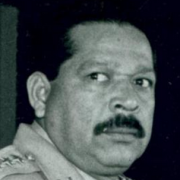

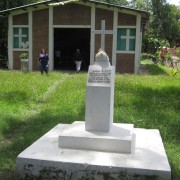
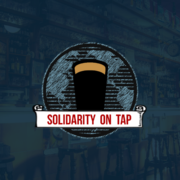
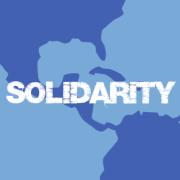
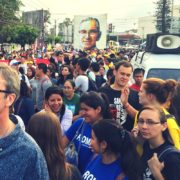

Work empowers. Toiling with others is far more fulfilling than toiling for others.
If a program helps to mold and shape the individual to improve and become a better person that is only good if a program admits there faults at the same time to show there human too instead of masquerading has been pefect has some are doing. This particular one is essential has it gives students a chance for new experiences and to visit a place which although contains tragedy, could also give a chance for one to reflect and accelerate the thought process on how to tap in to our emotions that make the person more understanding and another step towards been a genuine caring member of society that seeks real change for the future hopefully building the skills and motivation to do so in a law abiding, peaceful, non-violent and not targeting one race way like some of chosen to do. God Bless
He only said to me that i have come to the right place were i will be getting my heart desire. He told me what i need to do, After it was done, 24 hours later, My Ex Husband called me on the phone and was saying sorry for living me and the kids before now and one week after my Husband called me to be pleading for forgiveness,.. I am so happy and overwhelmed that my Husband is back for good, ………Robinson_bucler@yahoo. com_____________________❤️❤️❤️❤️❤️❤️❤️❤️…………..
He only said to me that i have come to the right place were i will be getting my heart desire. He told me what i need to do, After it was done, 24 hours later, My Ex Husband called me on the phone and was saying sorry for living me and the kids before now and one week after my Husband called me to be pleading for forgiveness,.. I am so happy and overwhelmed that my Husband is back for good, ………Robinson_bucler@yahoo. com_____________________❤️❤️❤️❤️…………..